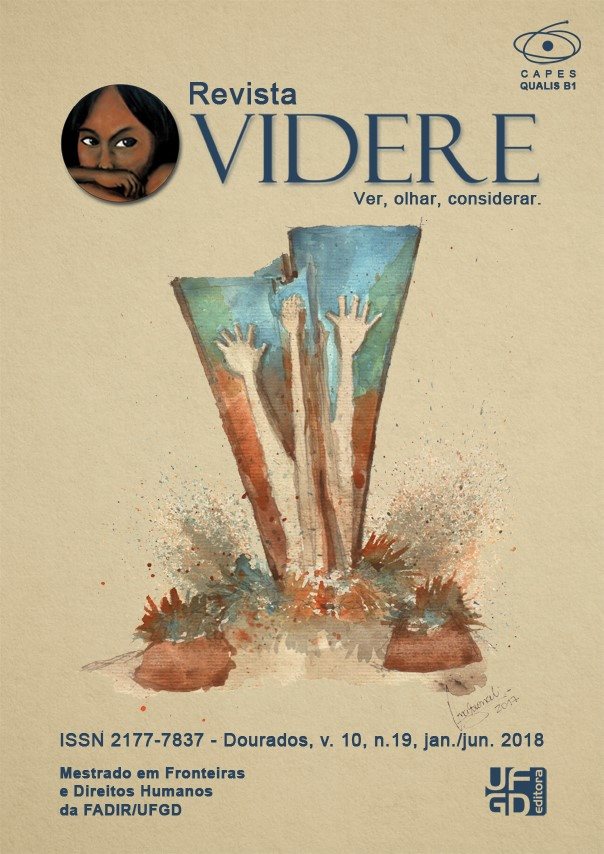Minorias sexuais e homofobia no direito brasileiro: breves delineamentos constitucionais
DOI:
https://doi.org/10.30612/videre.v10i19.6829Keywords:
Homoafetividade. Igualdade. Proteção legal. Criminalização. Homofobia.Abstract
O presente estudo trata da necessidade de dar proteção legal às minorias sexuais no que tange à criminalização de práticas discriminatórias. Na Constituinte de 1988, ao proibir discriminação de qualquer tipo, o Congresso protegeu várias minorias, inclusive os LGBT. Desde então, contudo, pouca coisa se fez no Legislativo para combater o preconceito com base na orientação sexual. Em sua atividade, os congressistas continuam a desconsiderar as conseqüências práticas da vivência plena da homossexualidade, sendo que tal fato pode ser observado diante da inércia na aprovação do Projeto de Lei n. 122/2006, que levou ao seu arquivamento recente, e no julgamento daAção Direta de Inconstitucionalidade por omissão n. 26 e do Mandado de Injunção n. 4733 perante o STF que visa a criminalização da homofobia, considerando-se a inércia do Legislativo e os atos violentos praticados contra as minorias sexuais LGBT como atos de racismo. Ser hétero ou homossexual não deveria acarretar qualquer diferença em termos de tratamento pelo Estado, pois sem dúvida deve haver o respeito aos princípios constitucionais de igualdade, da dignidade da pessoa humana, aliados aos demais valores fundamentais, e princípios gerais que regem o direito brasileiro.Downloads
Downloads
Published
How to Cite
Issue
Section
License
Authors must accept the publication rules when submitting the journal, as well as agree to the following terms:
(a) The Editorial Board reserves the right to make changes to the Portuguese language in the originals to maintain the cultured standard of the language, while respecting the style of the authors.
(b) Authors retain the copyright and grant the journal the right to first publication, with the work simultaneously licensed under the Attribution-NonCommercial-ShareAlike 3.0 Brazil (CC BY-NC-SA 3.0 BR) that allows: Share - copy and redistribute the material in any medium or format and Adapt - remix, transform, and create from the material. CC BY-NC-SA 3.0 BR considers the following terms:
- Attribution - You must give the appropriate credit, provide a link to the license and indicate whether changes have been made. You must do so under any reasonable circumstances, but in no way that would suggest that the licensor supports you or your use.
- NonCommercial - You may not use the material for commercial purposes.
- Sharing - If you remix, transform, or create from material, you must distribute your contributions under the same license as the original.
- No additional restrictions - You may not apply legal terms or technological measures that legally restrict others from doing anything that the license permits.
(c) After publication, authors are allowed and encouraged to publish and distribute their work online - in institutional repositories, personal page, social network or other scientific dissemination sites, as long as the publication is not for commercial purposes.



















